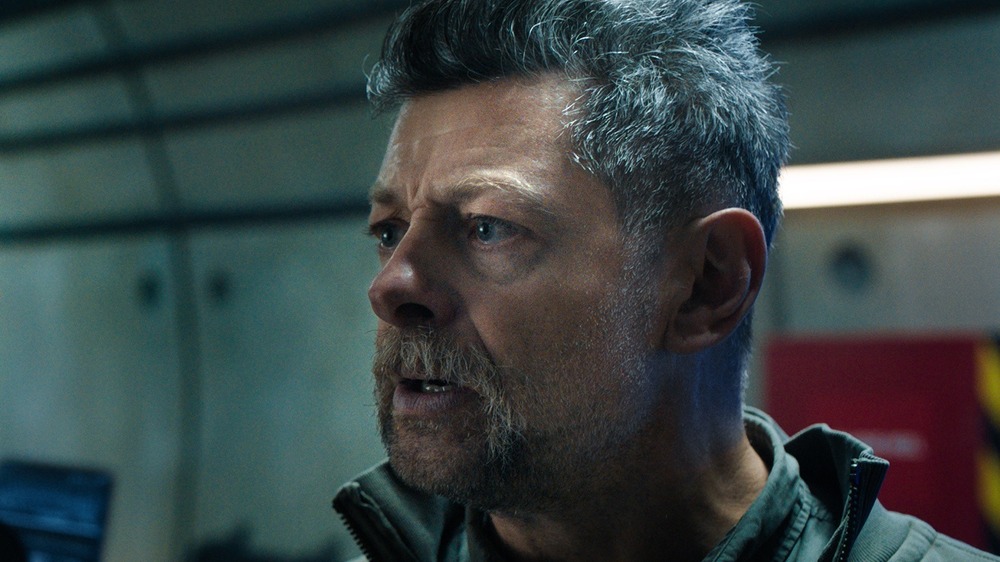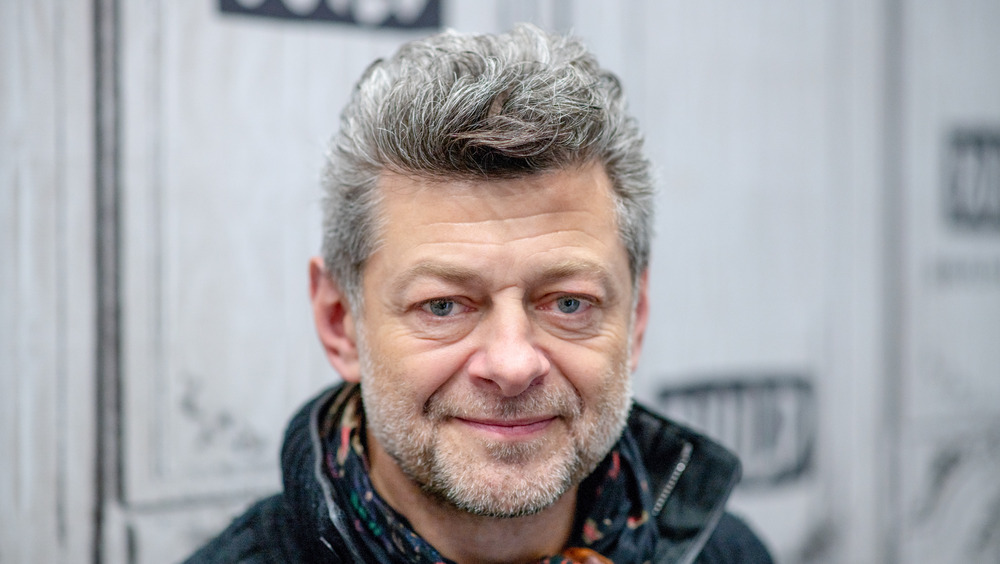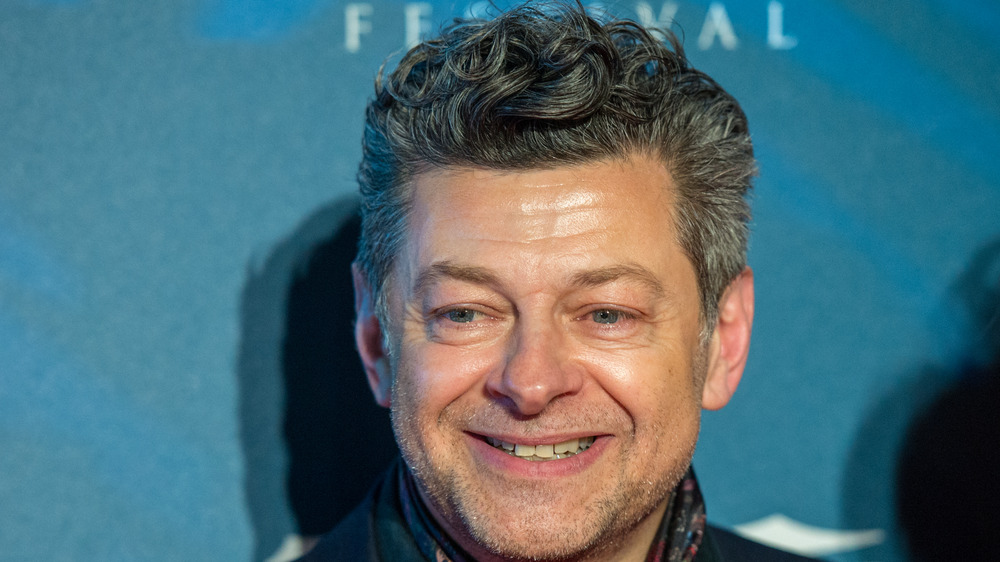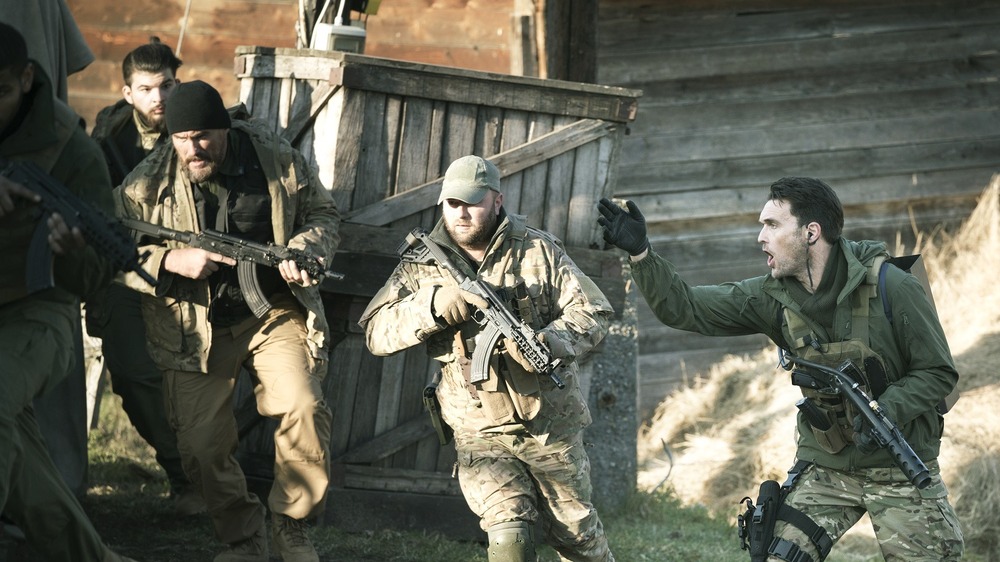Andy Serkis Reveals How Much Fun He Had Filming SAS: Red Notice - Exclusive Interview
The work Andy Serkis has done as a motion capture artist has helped cement the actor and director as a robust force in the entertainment realm. As Gollum in the Lord of the Rings trilogy, he racked up numerous award nominations and wins. His lengthy list of nominations and victories doesn't begin or end with computer-oriented performances; he's played diverse characters in live-action movies from serial killer Ian Brady to new wave pioneer Ian Drury over the course of his career.
Superhero-movie fans have seen him in the Marvel Cinematic Universe as Ulysses Klaue in Avengers: Age of Ultron and Black Panther, and in 2022 we get to see what he does as part of the DC universe when he becomes Alfred Pennyworth in The Batman. When he isn't starring as characters onscreen, he's directing movies like Mowgli: Legend of the Jungle.
Currently, Andy Serkis can be seen as George Clements in SAS: Red Notice, a supercharged action thriller peppered with political intrigue and military operations. The movie's script was co-written by Andy McNab, a former Special Air Services officer who wrote the book that set the film in motion. For Serkis, working with the experienced McNab and learning about his history was instrumental in bringing Clements to life. He stars alongside Ruby Rose, Sam Heughan, and Tom Hopper. Veteran actors like Tom Wilkinson and Noel Clarke also appear.
In an exclusive interview with Looper, Serkis shared how he absorbed as much as he could from McNab and how working on an intense movie was naturally challenging but also a true pleasure.
How Serkis got involved in this high-action thriller
How did you get introduced to the role of George Clements?
I was offered the role. I've been directing quite a lot, and I just read the script, and I found it really engaging and cool. And the idea of a sort of Die Hard movie in the Channel Tunnel seemed appealing. And this character, who had been in the Special Air Services (SAS) and is now heading up a private military company, I thought was an interesting area to investigate.
Yeah. Was there anything in particular about Clements that you found especially intriguing?
Yeah, this character very much represents Andy McNab. I managed to spend quite a lot of time talking with him, and he's a fascinating man. Having the chance to sort of get under the skin of someone who's gone through the whole SAS process and lived and worked as a soldier, and then worked in different capacities for governments, I found that all very interesting, including the entire way that private military companies operate on behalf of governments to do their work.
Several of your castmates spoke about the benefits of having Andy on the set. It sounds like it also helped intensify your portrayal too.
Oh, for sure. He [McNab] is so immersed in that world and has carried out operations and has had experiences that beg belief. You wouldn't believe that this man was capable of doing some of the things that he's experienced and done and carried out because there's a great sense of normality about him. He is fascinating, deeply fascinating.
Did you change — or want to amend — anything about Clements once you got to know the character?
I took my cues from Andy. In many respects, if you had to sit and have a drink with Andy or with Clements, you wouldn't ever get to know what is beneath his outer layer. That superficial level is one of complete and utter charm and straightforwardness and straight-talking. He is very deeply honest. He's had so many experiences and is frank about his own... what he calls "psychopathy." So I tried to bring that into Clements. I tried to make him an everyman sort of character, which is very much what Andy is.
Serkis' journey into a new mental landscape
Andy helped you get inside Clements' mind, which is essentially his mind.
Yeah. He was so helpful, not just on a technical level but just on a psychological level. And he's deeply well-read, intelligent, bright and knows what's going on politically in the world, is very informed. I just tried to imbibe everything from him.
He basically talks about getting into that collected mindset of Clements with this in mind, "You turn up, you do the job, and you do the gig." There's a straightforward simpleness to it. It's uncomplicated. He explained how he's able to disconnect emotionally to carry out the things that he has to do. I just found all that incredibly fascinating and alluring.
Did you bring anything into this role that you've used to develop previous characters?
Well, I think as an actor, there is a level of psychopathy that goes along with it. It's like you're going undercover when you're creating a role. For instance, in terms of creating a movie, building a movie and going onto location, and setting up a base camp, these are all military operations. The filmmaking system resembles a military strategy plan in terms of chain of command and so forth.
It sounds like you all got some interesting psychology tips. What about physical training?
Yeah. I mean, I had to get fit, but I was doing that in a way. I didn't spend as much time as the other guys who did many of the physical scenes where they were jumping through windows and all of that. They did a lot more than I did. I'm fairly fit, and I keep myself tuned for work as it were — I did a little bit of physical training and a little bit of weapons training, but not as much of the youngsters.
Andy Serkis thinks there are multiple reasons to relish SAS: Red Notice
What do you hope people get from seeing SAS: Red Notice?
All of the war and weapons stuff comes straight from the horse's mouth. It's authentic. The gunplay and gunfire and all of that kind of stuff are done meticulously. Andy said he felt that often in movies, that side of things is inaccurately portrayed, so that's one thing I think people will like, that there's an authenticity about how things are done, and operations are carried out. Apart from that, it's a rollicking, rollercoaster ride; it's Die Hard in a tunnel, in the Channel Tunnel. So it's an entertaining piece. It's got it all. It's got a romance to it. I think it's a great, enjoyable piece with a geopolitical underpinning. It can be enjoyed on different levels.
It seems that the cast had great on-set chemistry. Was there anything exciting or notable that you recall happening during the shoot?
We were under a lot of pressure because the shooting was quite fast and furious — but there was one scene that stands out that featured Noel Clarke and me. It involved lots of vehicles going down the tunnel. We'd changed the dialogue, the scene was rewritten the night before, and I couldn't get the former dialogue out of my head. For some reason, this really threw me. We had to re-shoot the scene so many times because we just kept getting tangled up. It's a scene where Noel and I are facing off with each other, so we were really, really there by the end of it. There was that pressure, as you've got military vehicles timed and waiting on your cues, but it was fun as well.



